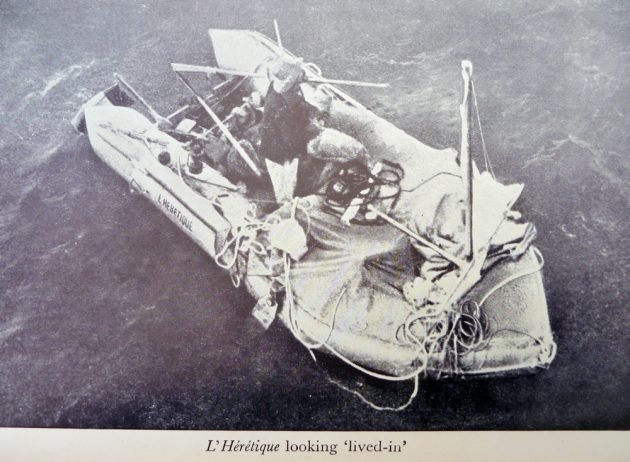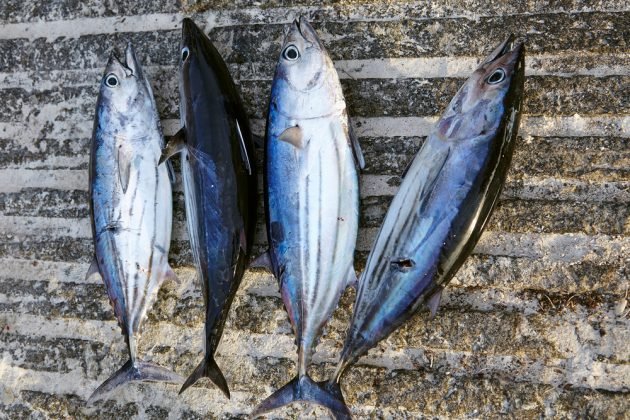Man is the crown of creation and the rightful owner of this planet. But this statement is true only as long as he is on land. As soon as people get into the ocean, and water, as is known, covers more than 70% of the earth's surface, they become helpless, like children. Few people manage to survive in the open ocean for more than a few days. In this article you will find unusual stories, interesting facts and practical tips for survival in the ocean.

The most famous person who proved by his own experience that it is possible to survive in the ocean is the French doctor Alain Bombard. In the 60s of the last century, he expressed the idea that shipwreck victims die primarily from fear and depression, and not from heat, hunger and thirst. To prove this theory, he undertook a solo voyage on a rubber boat across the Atlantic Ocean without any food and water supplies. The journey was a success. After 65 days, his boat reached the coast of Barbados. Alain Bombard lost 25 kilograms during this time, but was in satisfactory physical condition.
The absolute record holder for survival in the ocean is an English sailor of Chinese origin Lin Peng (Lin Peng). He served as a steward on a merchant ship that was torpedoed and sank in November 1942. Two hours later, a sailor who jumped overboard found a life raft with a minimal set of things for survival: several cans of cookies, 40 liters of drinking water, some chocolate, sugar, several flares, a couple of smoke bombs and an electric flashlight. Of course, this was only enough for a short time, so I had to drink rainwater and eat raw fish for the main part of my stay in the ocean, which stretched for 133 days. On April 5, 1943, Pan was discovered by three Brazilian fishermen who took him to one of the ports.
The most important danger for shipwreck victims is the lack of fresh water. Dehydration of the body occurs quite quickly and leads to an inevitable ending. However, Alain Bombard proved that you can drink salt water in small portions. The main thing is to do it no longer than five days in a row. The second source of liquid can be fish, which is 80% fresh water. And finally, the best, but unstable source is precipitation.

The second enemy of man in the ocean is hunger. However, everything is not as scary as it seems at first glance. Even if you don't have any fishing gear at all, you can still get out of the situation. Plankton can serve as an excellent source of protein, which is quite easy to collect by dragging a shirt or even a sock behind the boat. In addition, curious fish often swim up to the boat so close that you can try to get them with an oar. Lin Peng, for example, made a fishing hook from the wires of a flashlight, and built a fishing line from an unwound rope. This allowed him to even collect some food supplies, which he dried in the sun.
In conditions of limited resources, when every gram of food counts, spending energy on gymnastics seems like a pretty stupid activity. But this is not the case. In fact, a much greater danger to health is the forced absence of movement. Physical inactivity has an equally detrimental effect on the psychological state. Both heroes, about whom we told above, swam every day, tied up with a rope just in case.
This advice may seem like a mockery. Well, how can there be peace when there are thousands of kilometers of hostile emptiness around? However, Alain Bombard, whose opinion can definitely be trusted, believed that it is in the head that the most important tool for survival is located. "Victims of legendary shipwrecks who died prematurely, I know: it wasn't the sea that killed you, it wasn't hunger that killed you, it wasn't thirst that killed you! Rocking on the waves to the plaintive cries of seagulls, you died of fear," he said at the end of his journey.
Stories about shipwrecks and miraculous rescues in the ocean are among the most popular in cinema. If you are interested in this topic, we offer you a small selection of feature films and documentaries from different years.
"Hope will not fade away" (2013) — the story of an elderly yachtsman who got into a difficult situation.
"Life of Pi" (2012) — an Indian boy finds himself in a boat with a very unusual company.
"Open Sea: new victims" (2010) — during a walk in the open sea, the yacht capsizes, and a company of young people finds themselves in the water.
"The Deadly Sea" (2009) — the real story of the wreck of a fishing vessel in the Bering Sea.
And what stories and films about people who survived shipwrecks can you recommend?